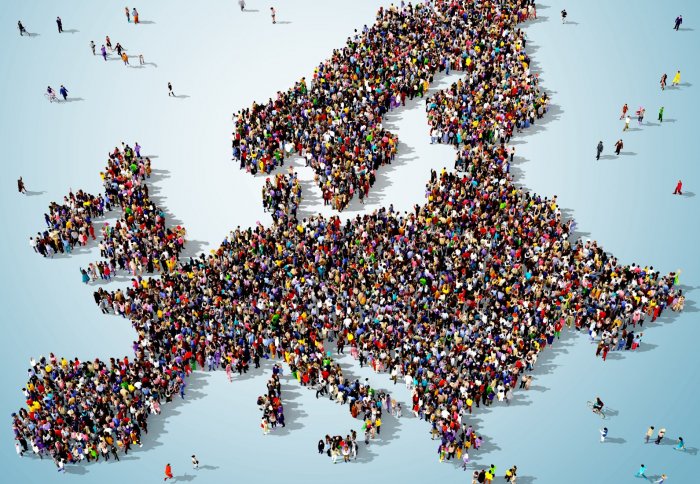Fund for European research partnerships awards first nine grants

The European Partners Fund, announced by the College in 2016, has begun its mission to foster collaborations with European colleagues.
The Fund provides up to £100,000 per year for seed funds and travel grants for Imperial academics to initiate and pursue collaborations with European colleagues.
Three of the first nine successful applicants discussed their projects and why working closely with European counterparts was so important to their research.
Studying huge space phenomena in the lab
Dr Francisco Suzuki-Vidal, from the Department of Physics, aims to study extremely big and distant space and astrophysical phenomena using Earth-based laboratory experiments. This requires ‘plasmas’, ionised gases with extreme temperatures and densities that can only be produced in world-class specialised facilities, some of which are at Imperial.
Even a short visit can make a significant difference in terms of discussions and generating new ideas.
– Dr Francisco Suzuki-Vidal
Dr Suzuki-Vidal said: “My research can only produce a significant impact through a close synergy between three different research areas: experimental plasma physics, space observations and measurements, and numerical simulations. Europe has a long established academic expertise in some of these areas, thus I can fully benefit from these ‘local' collaborations to advance my research.
“Although present technology makes it fairly easy to get in touch with collaborators abroad, there is an extremely important added factor that is only present when you speak to someone face-to-face. Even a short visit can make a significant difference in terms of discussions and generating new ideas.”
Helping deliver babies safely
The TRUFFLE (Trial of Randomized Umbilical and Fetal Flow in Europe) group investigates the best timing for delivering babies that are compromised in the womb. Delivering too early risks the complications of being premature, including respiratory and feeding difficulties and bleeds in the brain. Delivery too late risks stillbirth or the baby being born in a compromised condition.
The group’s first major trial was designed to determine the best way of managing pregnancies and deciding delivery timing in severely growth restricted premature babies using Doppler and fetal heart rate monitoring. They are now about to embark on a 36-centre feasibility study in the UK, Europe and Scandinavia that will run from 2017-2018 and will inform a randomized controlled trial in 2018 onwards.

Participants at a TRUFFLE II meeting, with representatives from UK, Netherlands, Austria, Germany, Czech Republic, Italy, Spain, Sweden, Norway and Belgium
Lead Imperial researcher Dr Christoph Lees from the Department of Surgery & Cancer said: “With leading UK and European colleagues we have similar management protocols using Doppler testing, fetal heart rate monitoring and ultrasound. Together we can recruit sufficient patients for large studies powered statistically for relatively rare events: this would not be possible in just a few UK centres.
“There is also value in getting together to discuss difficulties in perinatal care and achieving consensus with other experts as to how we might face some of the challenges in perinatal medicine; the ‘cross cultivation’ is unique and very valuable.”
Exploring quantum materials
When you are dealing with abstract concepts in physics, it is sometimes almost impossible to demonstrate your ideas by email or on Skype.
– Dr David Payne
Dr David Payne, from the Department of Materials, and his colleagues we explore phenomena in so-called ‘quantum materials’, principally the oxides of iridium, in order to understand further their known properties, or discover new and exotic condensed matter physics.
Dr Payne works with facilities in Italy to probe and synthesise these materials, with the hopes of building the core of a possible consortium for submitting proposals at both the national and European level.
He said meeting in person is invaluable for his work: “When you are dealing with abstract concepts in physics, it is sometimes almost impossible to demonstrate your ideas by email or on Skype. Face-to-face visits allow you to achieve a deeper mutual understanding of a problem (and hopefully it's solution!) much quicker than if we tried to do this remotely.”
Article text (excluding photos or graphics) © Imperial College London.
Photos and graphics subject to third party copyright used with permission or © Imperial College London.
Reporter
Hayley Dunning
Communications Division